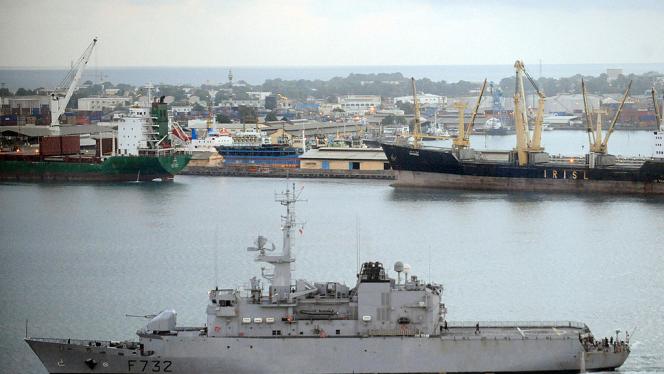Friday 22 November 2024
Who can live without a port? The politics of sea access in the Horn of Africa

Leaders across the Horn of Africa have touted the innumerable benefits of building ports for their people, putting them at the heart of their projects to develop their regions.
On January 1st, a ground-breaking memorandum of understanding was signed between Somaliland and Ethiopia, promising to upend the region’s political landscape. After a meeting in Addis Ababa, Somaliland’s president Muse Bihi announced a preliminary agreement which would grant Ethiopia access to the of Aden coast and a naval base, he added, for diplomatic recognition.
It was a breakthrough for both sides, sparking fury in Mogadishu and an international backlash, including condemnation from some of Ethiopia’s closest international partners. Whilst much of the focus has been on the political implications of the deal for the Horn of Africa, much less attention has been paid to the significant role accorded to the building of port infrastructure in how leaders across the region have articulated their vision for development and modernisation.
Ports are often overlooked in the daily rhythm of our lives but a quick glance around and we recognise their importance; from our mobile phones to the furniture, many of the things around us are manufactured abroad and transit through them before they reach local markets.
As a result, these coastal conduits for international commerce aren’t just logistical nodes but have taken centre stage in the geopolitics of the Horn. Ports have become symbols of ambition, promising the revitalization of economies and the elevation of societies.
When Dubai’s DP World signed an agreement with Puntland to take over the management of Bosaso port, Puntland’s minister of trade said the deal was the “key to Puntland’s economic growth.” This summer DP World committed to expanding its presence in Bosaso with a $336m additional investment.
Earlier last year DP World also cut the red ribbon for the Berbera Economic Zone after it retrofitted the coastal city’s container terminal in June 2021. Muse Bihi welcomed the development as a “major leap forward,” with Berbera’s mayor saying the port gave his city the chance to become an “international business centre.” In Djibouti, Abdillahi Adawe Sigad, head of Doraleh terminal port, told Financial Times: “Our dream is to become a new Singapore.” Its port would be the key to realising that goal.
Ethiopia’s ambition to become a maritime power again with access to a port fits this pattern. Abiy Ahmed has expressed a desire for a gateway to the sea as part of his objective to transform Ethiopia into “great power,” threatening his neighbours if they don’t oblige.
Geeska speaks to Professor Jutta Bakonyi, an expert on conflict, development and the geo-economics of ports in east Africa. Bankoyi speaks to Geeska about what ports represent, what they offer and why Ethiopia is keen on obtaining one.
Faisal Ali: Can you speak briefly about the geo-economic significance of ports generally; what do they offer countries which have them compared to those which don't or are landlocked?
Jutta Bakonyi: Around 80 per cent of global trade is moved by sea. Ports, therefore, are crucial nodes for all types of international trade. The containerization of trade that started in the 1970s has in the last decades reached the global south. It has, among other things, contributed to the current infrastructure boom across Africa, Asia and Latin America and explains the ongoing race for ports in Africa by globally leading port management and logistics companies. The fact that many of the leading container terminal operators are located outside of the global North – seated for example in China, Singapore, the United Arab Emirates, the Philippines, or Hong Kong – also attests to a global rebalancing of power in this regard.
Countries with access to the sea have a strategic advantage as they can benefit from revenues ports generate and can also use their access to the sea to project economic and political power.
However, it is important to note that ports are just outlets. The current attempt to build transport corridors across Africa shows not only that ports need the wider hinterland, but also that international investors have recognized that the African market has economic potential. Beyond the extraction of resources, the speedy economic growth of some countries provides a new consumer market. In its quest for continuous expansion and renewal, capitalism expands rapidly in the Global South and ports are major access points.
FA: The building of ports in East Africa is partially linked by elites advertising them to imagined futures of social and economic development. Abiy Ahmed for example has framed his aspiration for Red Sea access in his broader discourses around Ethiopia re-emerging as a great power. What has your research on Berbera, Bosaso and Djibouti shown you about how these narratives played out in those cases?
JB: The narratives of political elites resemble each other. Infrastructures are deeply interwoven in our visions of modernity and modernity’s promise of unending progress on the one side and political order on the other.
Infrastructures project the capitalist promise of free and fast movement, economic development, and unending opportunities for consumption. Political elites in the Horn of Africa are re-narrating this promise. We found in Somaliland and Djibouti, that the ongoing port and transport corridor development is aligned with people’s hope for political recognition (especially Somaliland) and a status improvement in the global order. However, people also hope that infrastructure development will lead out of poverty – a hope that is not likely to be realized speedily and may lead to many disappointments.
Prime minister Abiy, since he came to power in 2018, is using nationalist and civilizational rhetoric that docks into past narratives of Ethiopia’s status as a regionally and even globally leading power. Beyond the rhetoric, however, his attempts to centralize the state apparatus have initiated civil wars and upheavals and Abiy is currently struggling with growing internal opposition, and external conflicts and his economic record is devastating. His more recent rhetoric on Ethiopia’s grandness does not surprise. He is not alone in such rhetoric shifts, as many contemporary state leaders rely on populist rhetoric alluding to past grandness and mobilizing civilizational narratives to get internal support while projecting power in the international arena.
FA: African countries have demonstrated an eagerness to attract global capital advertising the advantages of their countries to investors but don’t always get to negotiate from a position of strength. How does this impact the relationship between investors and the state?
JB: African states usually lack the means to develop infrastructure and rely either on loans and credits or give inter- or multinational companies concessions and thereby give away previous state functions to external players – such as the operation of ports or container terminals and free zones. This is a global phenomenon and is not limited to African countries. Worldwide ports or at least parts of port operations are privatized.
Of course, the whole shift in governance arrangements has consequences as it increasingly shifts power to the private player, here global logistics/port companies that then also get the bulk of the revenues that previously would have benefited states or at least the political elites. In Africa, these dynamics are very pronounced – as much infrastructure is built from scratch, concessions and governance arrangements are often not transparent, and many countries are heavily indebted as a consequence.
FA: Ethiopia has expressed a desire to decrease its reliance on Djibouti which virtually monopolizes its position as an access point for Ethiopia's international trade. This has created mutual dependency, but which poses greater geopolitical risk for Ethiopia. Ethiopia has had periods of tremendous growth without a port, so do you agree with the urgency the country's current leaders have put on the need for a port, or are there other ways it could facilitate international trade without being beholden to its Neighbours?
JB: Without a port, Ethiopia’s trade depends on its good relations with Djibouti. However, the dependence is mutual as Djibouti’s economy depends on the utilization of its port by Ethiopia.
When it comes to their ports, both the Red Sea and Indian Ocean littoral countries in the Horn – among them, Eritrea, Djibouti, Somaliland, and Somalia (even Kenya) are courting Ethiopia as their ports need to tap into the Ethiopian market. Ethiopia is aware of this, and it could promote greater regional integration without having its port. Ethiopia has the political and economic leverage to limit dependency and work on mutually beneficial relations. The current rhetoric of urgency is a political maneuver.
Therefore, Ethiopia has all the chances to diversify its trade relations and access to ports in the region without the need for direct control. Ethiopia was originally part of a tripartite agreement between Somaliland and the UAE-based port operator DP-World, which is enlarging, modernizing and containerizing Somaliland’s main port in Berbera since 2018.
The agreement provides DP-World with a 30-year concession to manage the port and Ethiopia was originally included with a 19% share. Abiy, however, did not fulfil his concession obligations and lost its share in 2022.
FA: The timing of this MoU is interesting as the Red Sea, a major conduit for global trade, becomes a threatening passageway in the backdrop of a dramatically escalating regional crisis. We’re also just coming off the back of the Covid-19 which put disruptions to global trade in sharp focus. To what extent do you think Ethiopia is looking at these developments and considering whether its dependence on one port is wise?
JB: Maritime security has been moving to the top of an international agenda, with piracy, attacks, and wars affecting the smooth circulation of goods. The supply chain disruptions caused by the COVID-19 pandemic, the war in Ukraine or the current Houthi attacks on commercial ships in the Red Sea attest to maritime security concerns.
Supply chain disruptions cost companies millions of dollars and can lead to food and energy shortages and usually cause massive increases in prices. However, I doubt that Ethiopia’s direct access to the sea would change any of these dynamics, and, as I alluded to above, Ethiopia could in my view easily negotiate deals with its littoral neighbours, like the agreement with Somaliland.









